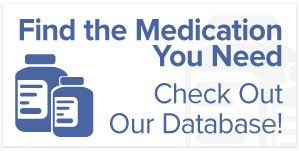Cholecystectomy, the surgical removal of the gallbladder, is a common procedure performed to alleviate the symptoms of gallstones or other gallbladder-related conditions. While the surgery offers relief to those suffering from these conditions, it also brings about certain changes in the body. Read on as we explore the after-effects of Cholecystectomy and how life can change after the procedure.
Adjustment Period
After Cholecystectomy, it is common for individuals to experience an adjustment period as the body adapts to the absence of the gallbladder. During this period, patients may notice after-effects of Cholecystectomy, such as mild digestive disturbances, diarrhea, or changes in bowel movements. However, these effects subside within days as the body adjusts to the altered digestive process.
Dietary Changes
One of the significant changes individuals may need to make after Cholecystectomy is adjusting diet to manage cholecystectomy after-effects. The gallbladder plays a crucial role in the digestion and absorption of fats. Without it, the body may struggle to process high-fat meals efficiently. Therefore, it is important to adopt a low-fat diet to mitigate cholecystectomy after-effects. Including healthy fats from sources such as avocados, nuts, and olive oil is recommended to maintain a balanced diet.

Weight Management
Some individuals may experience weight fluctuations as part of the Cholecystectomy after-effects. The removal of the gallbladder can affect the digestion of fats, potentially leading to weight gain if dietary habits aren’t adjusted accordingly. Effective weight management strategies, including following a balanced yet nutritious diet and regular physical activity, are essential in dealing with Cholecystectomy after-effects and maintaining overall well-being for years to come.
Increased Risk of Bile Reflux
Cholecystectomy can result in an increased risk of Bile Reflux as an after-effect of the procedure. Bile Reflux occurs when bile flows back into the stomach from the small intestine, causing discomfort and irritation. To manage Cholecystectomy after-effects, lifestyle changes such as avoiding large meals, eating slowly, and staying away from trigger foods are important. These measures help minimize the impact of Bile Reflux and its associated symptoms like heartburn and gastritis.
Vitamin Absorption
The gallbladder plays a role in the absorption of fat-soluble vitamins, and after Cholecystectomy, you may experience Cholecystectomy after-effects related to reduced absorption of these vitamins.
As a result, it is crucial to address potential vitamin deficiencies by considering supplements or dietary modifications. Consulting a reputable healthcare professional near you is advisable to ensure adequate vitamin absorption and mitigate the after-effects of Cholecystectomy.
A cholecystectomy is a beneficial surgical procedure that provides relief from gallbladder-related issues. Thus, it is important to understand and manage the after-effects of Cholecystectomy that accompany the removal of the gallbladder. The adjustment period, dietary changes, weight management, increased risk of Bile Reflux, and potential vitamin absorption issues are some of the key aspects individuals should be mindful of to ensure a smoother transition post-surgery.
Embrace a Healthier Post-Cholecystectomy Life with The RX Helper
If you or someone you know requires prescription assistance or medications after Cholecystectomy, consider The RX Helper, the leading patient prescription assistance program dedicated to helping the uninsured and under-insured gain access to affordable medications.
Our Prescription Assistance Programs can provide the necessary medications at little to no cost, offering support for those experiencing Cholecystectomy after-effects. For more information, visit www.therxhelper.com.



